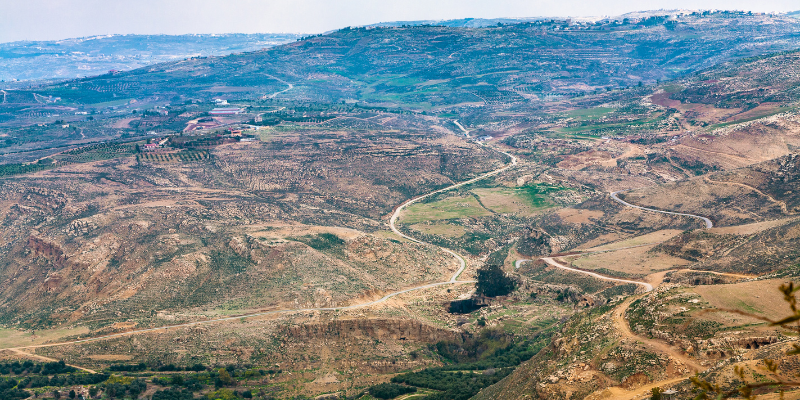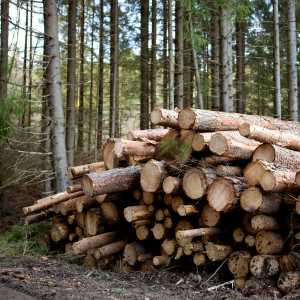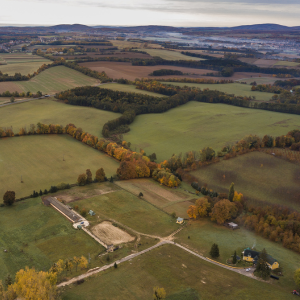
Understanding the Challenges of Selling Non-Buildable Land in Texas
Moving non-buildable lots in Texas can be tough, so a clear, thoughtful plan is vital. Because nearly all buyers look for land they can develop, the appetite for raw, unusable ground is naturally very low.
Because the parcels do not promise a house or store, sellers must pitch other ideas: weekend camping, grazing stock, or simple wildlife refuges. That pitch alone won’t succeed without knowing each country’s zoning rules, since local laws dictate what the land can never be used for.
Texas real estate still swings from one neighborhood to the next, riding the larger state economy, and that keeps sales work more challenging than most folks expect. Because of that, sellers have to pair solid, wide-reaching marketing that shows off every special feature with a price that makes savvy buyers feel its long-term promise is already worth their time.
What Does It Mean When Land Is Not Buildable?
In Texas, real estate jargon means unbuildable land, which is too broken, regulated, or risky to hold a house or commercial building. The usual suspects are rigid zoning rules, wetlands law, shaky soil, labeled flood zones, or just plain missing basics like water, power, and sewer.
Even easements or wide utility corridors that slice through a parcel can leave it seemingly sound yet still blocked from serious construction. Knowing these red flags- and explaining them clearly to buyers– is the only way to price, market, and eventually sell such property without getting burned.
Sellers must navigate these challenges by exploring alternative uses for the unbuildable land, such as agricultural purposes, recreational activities, or conservation. By highlighting these possibilities and communicating the reasons behind the land’s unbuildable status, sellers can target niche markets interested in unique opportunities within Texas real estate.
Evaluating the Market Value of Non-buildable Land in Texas
When evaluating the market value of non-buildable land in Texas, it’s crucial to consider various factors that can influence its worth despite building restrictions. Location plays a significant role; proximity to urban centers or scenic areas can still drive interest for recreational or conservation purposes.
Additionally, understanding zoning laws and potential future changes can positively or negatively impact valuation. Land characteristics such as size, topography, and access to utilities may also affect desirability for specific buyers interested in agricultural use, hunting leases, or investment purposes.
Market research is essential to identify comparable sales of similar unbuildable parcels in Texas, providing insights into pricing trends and buyer demand. Engaging with local real estate experts specializing in land transactions can offer valuable perspectives on niche markets and unique selling propositions that enhance the appeal of non-buildable properties.
Leveraging these strategies facilitates setting a competitive price that reflects both current market conditions and the specific attributes of the land. We Buy Land Quick can help ensure your pricing aligns with buyer expectations and market trends.
How to Enhance the Appeal of Your Non-buildable Property

Enhancing the appeal of non-buildable land in Texas requires a strategic approach emphasizing unique property features and potential uses. Highlighting the property’s location can be crucial, especially if it is near popular recreational areas or has scenic views that could attract buyers interested in outdoor activities such as camping, fishing, or hunting.
Emphasize existing natural resources like water access or timber, which can increase value for agricultural purposes or conservation efforts. Consider obtaining a professional survey to clearly define boundaries and ensure all legal aspects are transparent to potential buyers.
Marketing strategies should focus on creative uses of the land, such as leasing for grazing rights or renewable energy projects like solar farms. Collaborating with local real estate professionals with experience selling similar properties can provide valuable insights into market demand and target demographics.
Develop compelling visuals and detailed descriptions to showcase the land’s potential, leveraging digital platforms to reach broader audiences interested in investment opportunities beyond traditional residential development.
Strategies for Marketing Non-Buildable Land to Potential Buyers
When marketing non-buildable land in the Texas real estate market, it’s essential to focus on unique selling points that appeal to potential buyers. Highlighting scenic views, recreational opportunities, or conservation value can attract interest from outdoor enthusiasts and investors looking for land with environmental significance.
Emphasize the potential for agricultural use, such as grazing or timber production, which can provide income streams despite development restrictions. Utilize digital platforms to reach a broad audience; high-quality photos and virtual tours can effectively showcase the property’s natural beauty online.
Networking with local real estate professionals specializing in niche markets can connect you with buyers interested in unconventional properties. Additionally, consider offering flexible financing options to make the purchase more enticing for buyers who may be hesitant due to traditional lending challenges associated with non-buildable land. For guidance tailored to your property, contact us today.
How to Price Your Non-buildable Land Competitively in Texas
Pricing non-buildable land competitively in Texas requires a strategic approach, especially given the unique challenges of selling such properties. Start by conducting thorough market research to understand recent sales of similar unbuildable plots in your area, focusing on factors like location, size, access, and potential uses.
Consider consulting local real estate professionals specializing in land sales for insights into current trends and pricing strategies. It’s also important to factor in any limitations or restrictions that impact the land’s value, such as zoning regulations or lack of utilities.
Highlight potential alternative uses, like recreational purposes or conservation efforts, which can attract niche buyers. Offering flexible financing options can make your property more appealing by lowering the upfront cost barrier for buyers interested in investing in Texas real estate.
Ultimately, setting a competitive price involves balancing the property’s inherent limitations with its unique selling points to effectively capture buyer interest.
Legal Considerations for Non-Buildable Land Transactions in Texas
When dealing with the sale of unbuildable land in Texas, it is crucial to understand the legal considerations that can impact these transactions. Unbuildable land may be subject to specific zoning laws, environmental regulations, and deed restrictions that dictate permissible uses.
Sellers must disclose any limitations or encumbrances affecting the property to potential buyers, as failure to do so could lead to legal disputes. Conducting a thorough title search is essential to identify any liens or easements that could complicate the transaction.
Additionally, understanding local zoning ordinances and consulting with a real estate attorney specializing in Texas land law can help ensure compliance with state regulations. Sellers should also consider how mineral and water rights are handled in Texas, as these can significantly influence the value and appeal of the land.
By navigating these legal intricacies carefully, sellers can position their unbuildable properties more effectively within the market.
Navigating Zoning Laws and Regulations for Non-buildable Land in Texas

Navigating zoning laws and regulations for non-buildable land in Texas is critical to effectively selling such properties. Understanding the intricacies of local zoning ordinances is essential, as these dictate what activities are permissible on unbuildable land.
In Texas, these regulations can vary significantly between counties and municipalities, making it crucial to consult with local planning departments to determine potential uses for the property. For instance, while one area might restrict usage strictly to agriculture, another might allow recreational or conservation efforts.
Sellers should also consider obtaining a detailed land survey and an environmental assessment to identify possible constraints or opportunities that may affect the property’s marketability. Engaging with real estate professionals who specialize in Texas land sales can provide invaluable insights into leveraging existing zoning laws to highlight alternative uses that could attract niche buyers.
By thoroughly understanding and strategically communicating the unique possibilities within the framework of current regulations, sellers can better position non-buildable land as an attractive investment opportunity.
Tax Implications of Selling Non-Buildable Land in Texas
Selling non-buildable land in Texas involves understanding the tax implications of such transactions. It’s crucial to recognize how capital gains taxes may apply.
The difference between the purchase and sale prices of the land determines the capital gains tax owed. Landowners should know that holding the property for over a year often qualifies for long-term capital gains rates, typically lower than short-term rates applied to assets held for less than a year.
Additionally, sellers might benefit from considering any potential deductions related to improvements or maintenance costs incurred during ownership. To navigate these complexities effectively, it’s important to consult with a tax professional who understands Texas real estate law.
Understanding these tax implications is essential in optimizing profits and minimizing liabilities when selling non-buildable land in Texas.
Utilizing Online Platforms to Reach Buyers for Unique Properties
Leveraging online platforms can be a game-changer in selling unbuildable land successfully in the Texas real estate market. By utilizing websites like Zillow, LandWatch, and Realtor.com, sellers can target potential cash land buyers in Dallas and surrounding cities in Texas who are actively searching for unique properties.
These platforms allow for detailed property descriptions and high-quality images highlighting the distinct features of unbuildable land, such as location advantages or potential for recreational use. Social media channels like Facebook Marketplace and Instagram can also attract a broader audience through targeted ads and engaging content showcasing the property’s potential.
Additionally, specialized forums and online communities focused on real estate investment offer opportunities to connect with niche buyers interested in unconventional land opportunities. Crafting compelling listings with strategic keywords related to Texas real estate can improve search visibility, while virtual tours provide an immersive experience that helps prospective buyers visualize the land’s possibilities.
Understanding Buyer Perspectives on Purchasing Non-buildable Lands
When considering the sale of unbuildable land in Texas, it’s crucial to understand buyer perspectives and motivations. Potential buyers often view non-buildable lands through a lens of opportunity, seeking creative uses that bypass traditional building restrictions.
These lands can attract investors interested in recreational activities, such as hunting, camping, or off-road adventures, which are popular in Texas’s vast open spaces. Buyers may also be drawn by the potential for conservation efforts or as a strategic land banking investment, anticipating future zoning changes that could increase property value.
Understanding these perspectives enables sellers to effectively market these plots by highlighting unique features such as accessibility, natural resources like water bodies or fertile soil, and proximity to popular outdoor venues. Additionally, emphasizing potential tax benefits and low maintenance costs can appeal to those looking for long-term hold strategies without immediate development prospects.
By aligning marketing strategies with buyer interests, sellers can tap into niche markets eager to capitalize on the unconventional benefits of non-buildable land.
Creative Uses for Non-Buildable Land: Maximizing Value
Employing creative strategies can significantly enhance the value of non-buildable land in Texas real estate. One practical approach is to explore the potential for recreational use, such as leasing the land for camping, hunting, or fishing activities.
These options cater to outdoor enthusiasts and can generate a steady income stream without extensive development. Another strategy involves leveraging the land for agricultural purposes, like beekeeping or organic farming, which often require minimal infrastructure and can attract local farmers or hobbyists seeking additional space.
Conservation easements are also viable; landowners can preserve the natural environment and potentially benefit from tax incentives by selling the development rights while retaining ownership. Additionally, marketing the property as a solar farm site capitalizes on Texas’s ample sunshine and growing demand for renewable energy sources.
Creative collaboration with local businesses or community organizations can further unlock opportunities for using non-buildable land in innovative ways that maximize its value in the competitive Texas real estate market.
Financing Options for Buyers of Non-buildable Land

Understanding and presenting flexible financing options can attract potential buyers when selling non-buildable land in Texas. Seller financing is a popular approach in which the seller acts as the lender and offers to carry the note, allowing buyers to make payments directly to them over time.
This arrangement can be appealing due to its typically lower qualification requirements than traditional bank loans. Lease-to-own agreements are another viable option, allowing buyers to lease the land with an agreement that will enable them to purchase it later.
Offering creative financing solutions like these can make non-buildable parcels more accessible by reducing upfront costs for buyers who may find it challenging to secure conventional funding through financial institutions. Additionally, promoting opportunities for partnerships or joint ventures might entice investors looking for unique projects or future development potential once zoning regulations change.
By leveraging these strategies, sellers can effectively market unbuildable land by broadening their pool of interested candidates beyond those limited by traditional purchasing methods.
Environmental Considerations for Selling Non-buildable Property
When selling unbuildable land in Texas, it’s crucial to address environmental considerations that can enhance the property’s appeal and marketability. Understanding local environmental regulations and potential conservation opportunities is key.
Buyers interested in non-buildable land often seek properties for recreational use, conservation, or wildlife preservation. Highlighting unique environmental features, such as native vegetation, water sources, or habitats for local wildlife, can attract environmentally conscious buyers.
Additionally, exploring options like conservation easements can offer tax incentives while preserving the land’s natural state. Knowledge of flood zones and soil quality is also essential, as these factors impact the land’s usability for agriculture or recreational development.
Engaging with local environmental experts and agencies can provide valuable insights into leveraging the ecological attributes of your unbuildable property in Texas real estate.
Benefits and Drawbacks of Leasing vs Selling Non-Buildable Land
Leasing non-buildable land in Texas offers several advantages over selling. One significant benefit is the potential for a consistent revenue stream, as leasing provides regular income without giving up property ownership.
This can be particularly appealing in Texas real estate markets where land values are expected to rise, allowing owners to benefit from future appreciation. Moreover, flexible leasing arrangements enable landowners to renegotiate terms or explore alternative uses as market conditions change.
However, there are drawbacks to consider. Leasing may involve ongoing management responsibilities and potential disputes with lessees over land use and maintenance obligations.
On the other hand, selling non-buildable land provides an immediate lump sum payment, which can be advantageous for those looking to quickly liquidate assets or reinvest elsewhere in the real estate market. Yet, selling means relinquishing all future gains from potential increases in property value and losing control over how new owners use the land.
Understanding these benefits and drawbacks in Texas real estate is crucial for making informed decisions about leasing or selling non-buildable land.
What Is the Best Way to Sell a Piece of Unbuildable Land?
Effective strategies are crucial for successful selling unbuildable land in the Texas real estate market. The best way to sell a piece of land that cannot be developed is to accurately assess its unique value propositions and target niche buyers who benefit from its specific features.
First, thoroughly analyze the land’s attributes, such as location, accessibility, and potential for recreational use or conservation opportunities. Highlight these aspects in your marketing materials to attract interest from prospective buyers, such as neighboring property owners, nature enthusiasts, or investors interested in land banking.
Networking with local realtors specializing in land sales can enhance your reach and provide insights into potential buyers looking for unbuildable property. Additionally, online platforms like specialized real estate websites can expand visibility beyond the local market.
Offering flexible or owner financing options can further entice buyers seeking investment opportunities in Texas’s diverse landscape. By leveraging these targeted strategies, sellers can effectively navigate the challenges of selling unbuildable land and achieve optimal results in the competitive Texas real estate market.
What Is Required to Sell Land in Texas?
To successfully sell your land fast in Fort Worth and other cities in Texas, especially unbuildable land, it’s crucial to understand the specific requirements involved in the transaction. First and foremost, you need a clear and marketable title to ensure no legal impediments.
Conduct a comprehensive title search to verify ownership and address any encumbrances or liens. It’s also essential to obtain a land survey to clearly define property boundaries, which can be particularly beneficial for marketing.
Familiarize yourself with the local zoning regulations and restrictions that classify the land as unbuildable, as potential buyers will want detailed explanations. Additionally, providing potential buyers with detailed information on any easements or access rights is vital.
Engaging a real estate professional specializing in Texas land sales can offer invaluable insights and help effectively navigate the complexities of marketing unbuildable properties. Finally, having all pertinent documentation ready—such as deeds, tax records, and environmental assessments—can streamline the selling process and build buyer confidence.
Need to sell your home fast? We Buy Land Quick offers fair cash deals, no repairs needed, and a hassle-free process. Call (469) 529-7977 for a no-obligation offer and get started today!
| REZONING | ZONED | TITLE COMPANY | TITLE COMPANIES | TITLE INSURANCE | MULTIPLE LISTING SERVICE |
| MLSS | CASH | PURCHASE AND SALE AGREEMENT | NEGOTIATIONS | CONTRACT | RANCHES |
| RANCHING | CATTLE RANCHES | HILL COUNTRY | TEXAS HILL COUNTRY | CRAIGSLIST | CRAIGSLIST.ORG |
| COMPANY | FSBO | FOR SALE BY OWNER | LEGAL TITLE | APPRAISAL | MONEY |
| DUE DILIGENCE | ADVERTISE | ADVERTISING | ACRES | REAL ESTATE TRANSACTION | PROPERTY TAXES |
| PROPERTY TAX | PHOTOGRAPHY | ATTORNEYS | FEES | TRANSACTION FEES | |
| U.S. | AMERICA | TOPOGRAPHICAL | SURVEYOR | RISKS | REAL ESTATE INVESTORS |
| PROFITABILITY | PROBATE | MAPS | INSURANCE | EARNEST MONEY | |
| DATA | CUSTOMER | LENDERS | CLASSIFIED ADS | LAND PARCEL | YOUR TEXAS LAND |
| CASH OFFER FOR | A COMPANY THAT | A TITLE COMPANY | THE PROPERTY IS | YOUR LAND IN TEXAS | SELLING LAND IN TEXAS |
| SELL YOUR TEXAS LAND | CASH OFFER FOR YOUR | A FAIR CASH OFFER |
Helpful Texas Blog Articles

